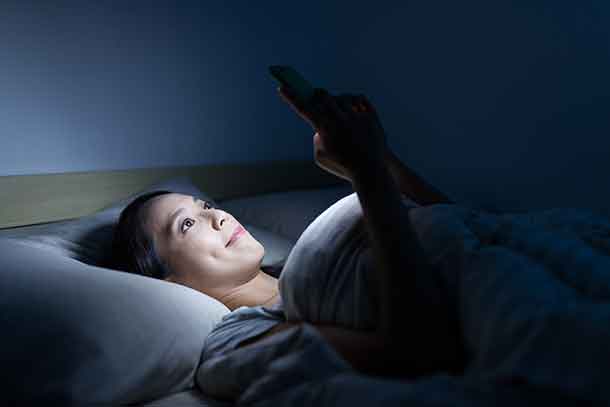
THUNDER BAY – LIVINGAre you experiencing behavioral problems with your teenagers? Removing electronic media from the bedroom and encouraging a calming bedtime routine is among recommendations Penn State researchers outline in a recent manuscript on digital media and sleep in childhood and adolescence.
Sleep is critical to resting the body and building a healthy mind and body. Everyone who has had a sleepless night knows how hard that can be the next day. The research into electronic screens and devices on youth is still new as smartphones and social media continue to be a major part of the lives especially of teenagers and children.
The manuscript appears in the first-ever special supplement on this topic in Pediatrics and is based on previous studies that suggest the use of digital devices before bedtime leads to insufficient sleep.
The recommendations, for clinicians and parents, are:
- 1. Make sleep a priority by talking with family members about the importance of sleep and healthy sleep expectations;
- 2. Encourage a bedtime routine that includes calming activities and avoids electronic media use;
- 3. Encourage families to remove all electronic devices from their child or teen’s bedroom, including TVs, video games, computers, tablets and cell phones;
- 4. Talk with family members about the negative consequences of bright light in the evening on sleep; and
- 5. If a child or adolescent is exhibiting mood or behavioral problems, consider insufficient sleep as a contributing factor.
“Recent reviews of scientific literature reveal that the vast majority of studies find evidence for an adverse association between screen-based media consumption and sleep health, primarily delayed bedtimes and reduced total sleep duration,” said Orfeu Buxton, associate professor of biobehavioral health at Penn State and an author on the manuscript.
The reasons behind this adverse association likely include time spent on screens replacing time spent sleeping; mental stimulation from media content; and the effects of light interrupting sleep cycles, according to the researchers.
Buxton and other researchers are further exploring this topic. They are working to understand if media use affects the timing and duration of sleep among children and adolescents; the role of parenting and family practices; the links between screen time and sleep quality and tiredness; and the influence of light on circadian physiology and sleep health among children and adolescents.
